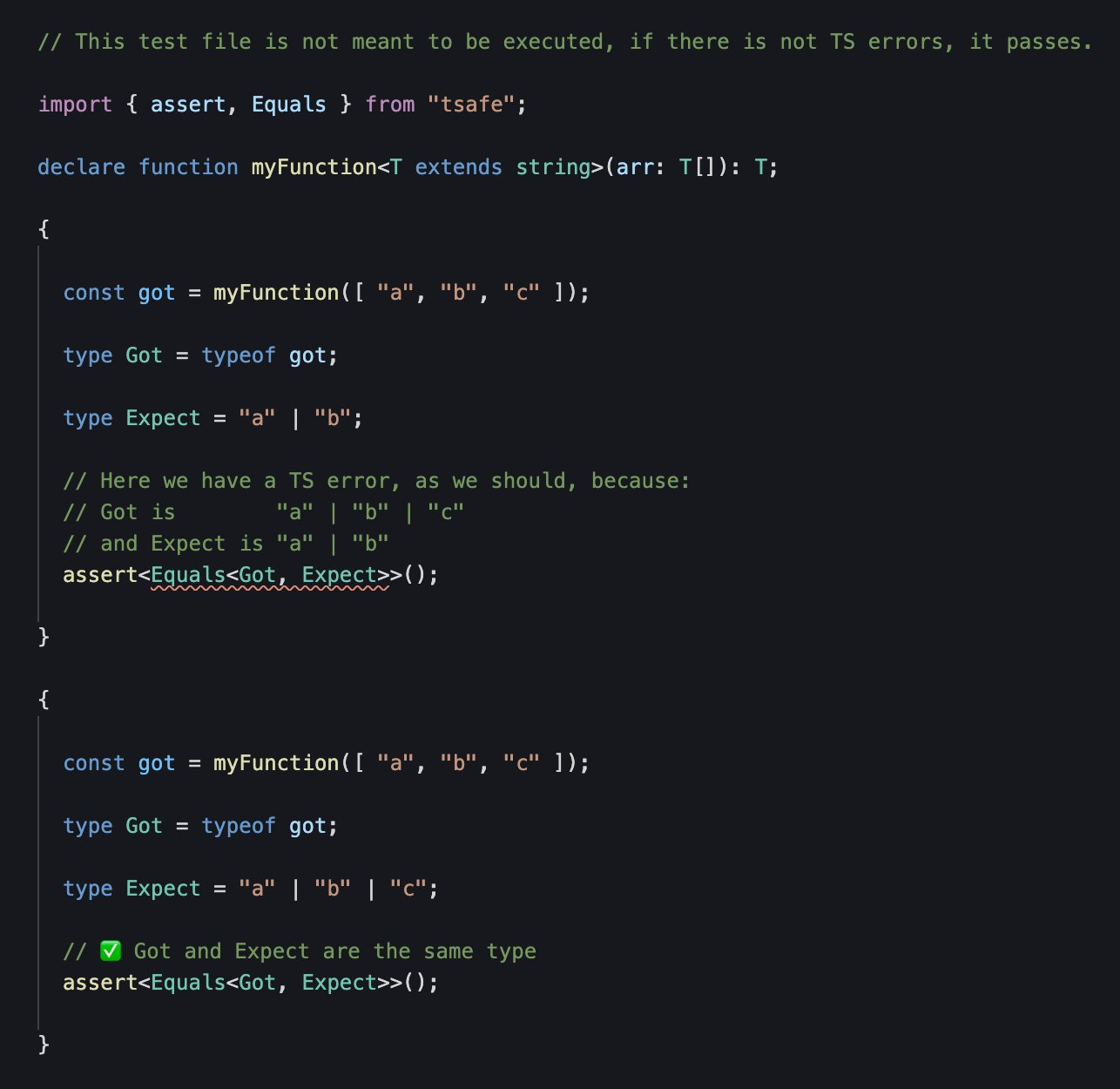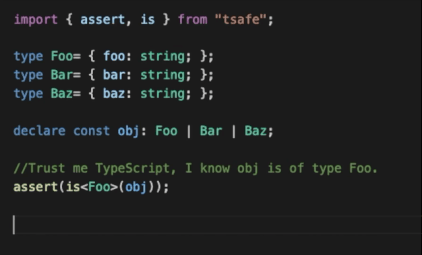A collection of utilities to take your TypeScript development up a notch




Assert things you know are true, get runtime errors where you were wrong:

Implement compile time unit testing


Playground
Make sure all properties of an object are deconstructed

Playground
Make sure you never forget a case in a switch

Playground
Make TypeScript believe whatever you say without having to write const obj2 = obj as Bar.
The more powerfully is to be able to tell TypeScript that obj ist not of type Bar:

Make sure your zod schema exactly matches a given type:

Powerful TypeScript features like assertion functions or user-defined type guards are only useful if paired with utility functions.
TypeScript, however, only exports type helpers (e.g. Record, ReturnType, etc.).
This module provides «the missing builtins» such as the assert function
and corrects frustrating aspects of default utility types such as ReturnType.
tsafe is both an NPM and a Deno module.
(Achieved with denoify)
import { assert, typeGuard, ... } from "https://deno.land/x/tsafe/mod.ts";$ npm install --save tsafe
#OR
$ yarn add tsafe






